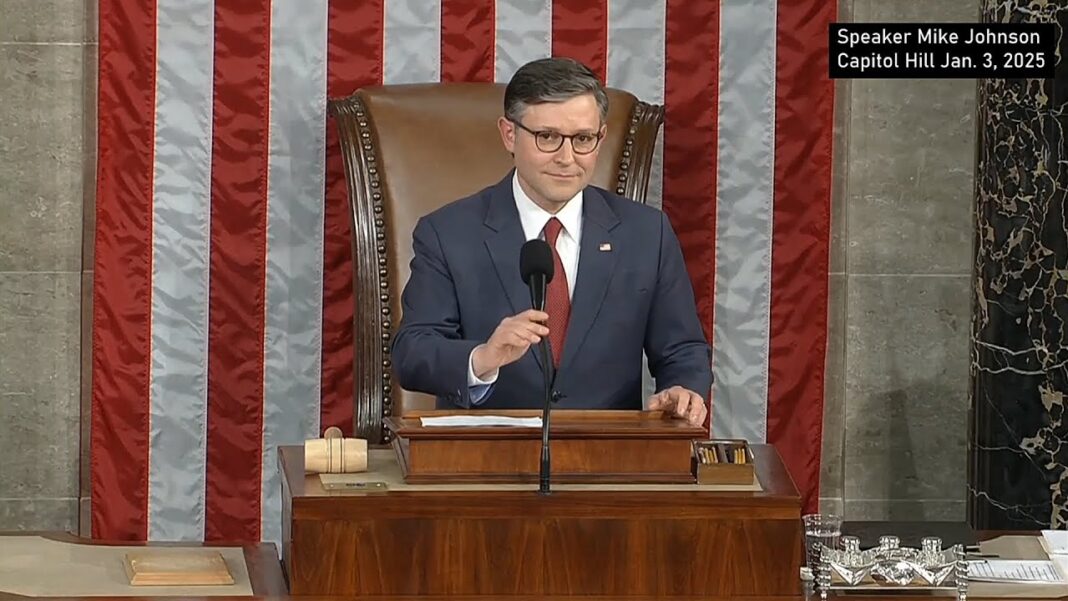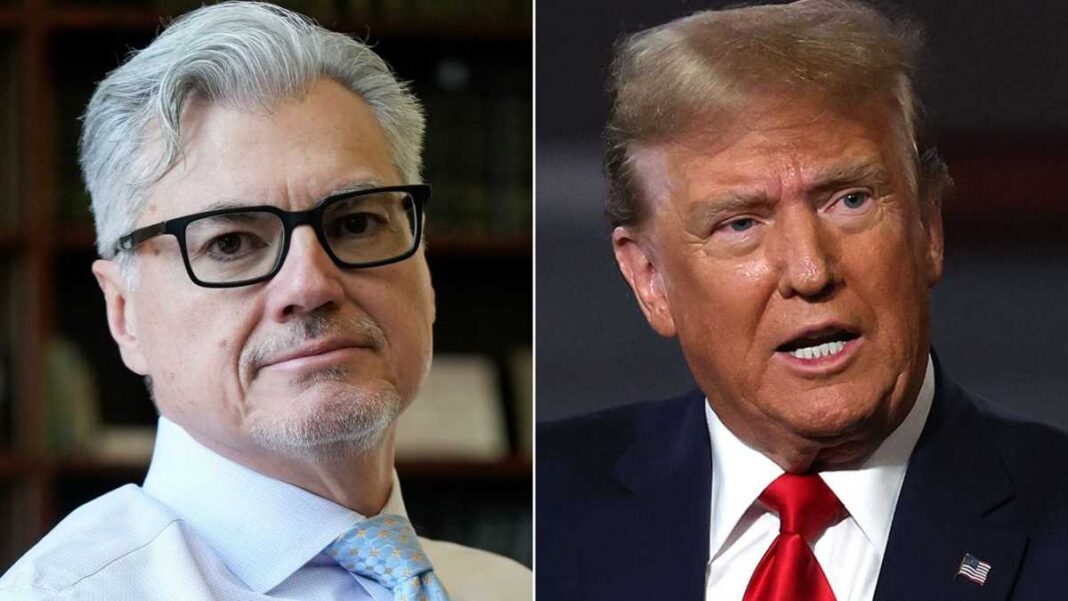In a 218–215 vote, Johnson was elected on the first ballot in spite of short-lived hiccups early in the vote.
The U.S. House of Representatives on Jan. 3 elected Rep. Mike Johnson (R-La.) to reprise his role leading the lower chamber.
In a 218–215 vote, Johnson was elected on the first ballot despite short-lived hiccups early in the vote.
There were initially signs of a brewing mutiny among the House GOP caucus, as several members—beginning with Reps. Thomas Massie (R-Ky.) and Chip Roy (R-Texas)—expressed reservations or outright opposition to Johnson.
Normally, that wouldn’t be a problem, but with Republicans controlling just 219 seats, one above the majority threshold, Johnson needed the support of all but one member of his conference.
Despite President-elect Donald Trump’s endorsement of Johnson, there was no certainty about the outcome as the 119th Congress gathered for its opening day.
Seeking to head off the challenges to his bid for the gavel, Johnson released a statement after the opening of the Congress, promising “an end to the status quo, and a return to fiscal sanity.”
Johnson promised spending reforms, audits of federal agencies’ budgets, and “aggressive authorizations and appropriations reviews.”
He said, “Republicans have a mandate to implement the America First Agenda, and as Speaker, this will be my priority.”
These promises are tailor-made for House conservatives who have been unhappy with Johnson’s past decision on government funding and spending legislation.
Though Johnson initially looked poised to fail on the first ballot, he ultimately managed to convince defectors to switch their votes.
In the first tabulation of voting, Johnson received 216 votes, House Minority Leader Hakeem Jeffries (D-N.Y.) received 215, and three ballots were cast for other Republicans.
Massie voted for Rep. Tom Emmer (R-Minn.), the GOP whip.
Rep. Ralph Norman (R-S.C.) became the second defector, voting for House Judiciary Committee Chairman Jim Jordan (R-Ohio), while Rep. Keith Self (R-Texas) followed up with a vote for Rep. Byron Donalds (R-Fla.).
Many members associated with the House Freedom Caucus abstained on that ballot, including the current chairman of the caucus, Rep. Andy Harris (R-Md.).
By Joseph Lord









